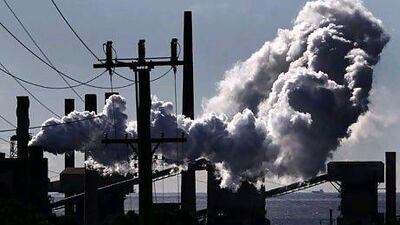Q&A: Carbon capture schemes
How does a trading scheme work? Emissions trading is a market-based scheme for environmental improvement. The environmental regulator first determines total acceptable emissions and then divides this total into tradeable units (often called credits or permits). These units are then allocated to participants in the scheme. Those that reduce emissions may have surplus units that they can sell to others that find emission reduction more expensive or difficult.
Which countries are involved? Carbon trading has been introduced in the EU and, on a much smaller scale, in New Zealand. California plans to start in 2013, with South Korea likely in 2015.
Who will pay ultimately pay most for the carbon permits? The consumer. Polluters will seek to pass on their costs. The Australian government expects the average household's cost of living to rise by close to A$10 a week.
The Australian government was last week crowing over a major political and moral victory.
After years of wrangling and political havoc over climate change, parliament voted to bring in a carbon price designed to penalise the biggest polluters and reward its cleanest industries.
It is the first step in a move towards trading carbon permits, a system already running in Europe, known as an emissions-trading scheme.
The idea is that the biggest polluters are forced to buy expensive permits for the right to continue polluting. Those who reduce their carbon footprint can then sell on excess permits to those who have failed to do so - this is how a market is born.
Australia will not be trading permits until 2015. It will begin its pollution price regime in the middle of next year with a fixed A$23 (Dh86.84) a tonne carbon price, which will then transform to a trading scheme with a floating price in mid-2015.
Of course pollution permit trading is not confined to those who actually need them.
That is, the coal-fired power stations, the electric utilities, steel manufacturers and aluminium smelters. Speculative trading, based on the futures markets, will all be part of the equation.
A market in the futures allows a user to lock in a price. It is what a farmer does who wants to ensure a profit before a crop is harvested. But a carbon permit is not a physical commodity - it is not a bushel of wheat or a barrel of oil. If you lock in a price that makes it affordable to pollute, then what incentive is there to reduce carbon emissions?
When the EU adopted a trading system in 2005, it over-issued permits, say critics, meaning pollution has barely been affected. There are vested interests in cornering markets or trying to arbitrage between prices that have nothing to do with pollution reduction.
It is not surprising, given that the global carbon market is now worth US$144 billion (Dh528.9bn). There are carbon futures and "carbon securities" - they are bundled and sold in units as carbon assets, no differently to the mortgage-backed securities often blamed for the financial collapse of 2008.
Who is getting into this market?
Big banks such as Goldman Sachs, Barclays and JPMorgan have been mentioned, hardly companies with a mandate to buy credits in an effort to save mankind from the apocalypse that is global warming.
There is now an emerging market in carbon "derivatives" - complex instruments mirroring practices found in other financial markets.
Take contracts for difference (CFD), which trade in Europe and Australia. A CFD share can be leveraged 100 times if the borrower wishes to make such as bet. CFD traders are already speculating on future carbon emission values. If a commodity has a viable futures market, a CFD market can be made. "If there's a futures market on carbon credit - and people want to trade it, we'll be offering it," says Chris Weston, an institutional dealer at IG Markets in Melbourne.
Everyone is getting on the bandwagon. ASX Group, which operates the country's main stock exchange, plans to offer secondary and futures markets for carbon "allowances" even before the country's emission trading system begins in 2015.
The key to the trading system's success "will be the introduction of second and futures markets for carbon permits", ASX said. This is financial trading speak for the futures markets to get the best deal on carbon rather than reduce the country's dependence on carbon-emitting industries.
Who are the big emitters? In a nutshell, the big resource and energy companies. They will be forced to either buy permits direct, drastically reduce their emissions - a big hit on their productivity - or buy permits internationally.
What's the alternative?:
Energy Join The National as it explores alternative to fossil fuels. Learn more
What is certain is that they will make those choices based on the marginal cost and benefits of doing one or the other and then they will be seeking to recover their costs in doing so - and will try to move prices to their advantage.
twitter: Follow and share our breaking business news. Follow us

